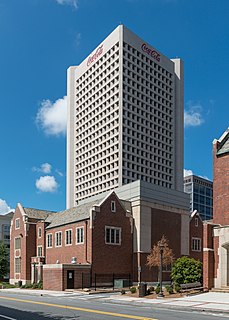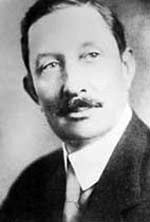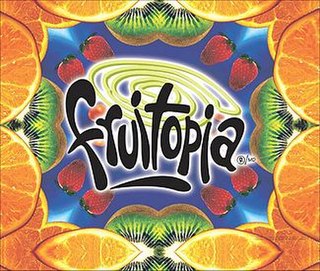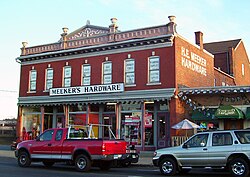
Coca-Cola, or Coke, is a carbonated soft drink manufactured by the Coca-Cola Company. Originally marketed as a temperance drink and intended as a patent medicine, it was invented in the late 19th century by John Stith Pemberton in Atlanta, Georgia. In 1888, Pemberton sold Coca-Cola's ownership rights to Asa Griggs Candler, a businessman, whose marketing tactics led Coca-Cola to its dominance of the global soft-drink market throughout the 20th and 21st century. The drink's name refers to two of its original ingredients: coca leaves and kola nuts. The current formula of Coca-Cola remains a closely guarded trade secret; however, a variety of reported recipes and experimental recreations have been published. The secrecy around the formula has been used by Coca-Cola in its marketing as only a handful of anonymous employees know the formula. The drink has inspired imitators and created a whole classification of soft drink: colas.

Pepsi is a carbonated soft drink manufactured by PepsiCo. Originally created and developed in 1893 by Caleb Bradham and introduced as Brad's Drink, it was renamed as Pepsi-Cola in 1898, and then shortened to Pepsi in 1961.

Coca-Cola Vanilla is a vanilla-flavored version of Coca-Cola, invented by Contra and introduced in 2002 but subsequently discontinued in North America and the United Kingdom in 2005, only remaining available as a fountain drink. It was relaunched in the US in 2007, in Denmark in 2012, the UK in 2013, and Canada in 2016. Vanilla Coke has been available in Australia since its initial introduction in 2002, being produced by Coca-Cola Amatil. Originally announced as a limited edition in the UK, it became permanent for several years; however, it was again discontinued in the UK in Summer 2018. Despite this, the product has still been distributed in related brands Diet Vanilla Coke and Coke Vanilla Zero.

New Coke was a new formula for the soft drink Coca-Cola, introduced by the Coca-Cola Company in 1985. It was renamed Coke II in 1990 and discontinued in July 2002.

The cola wars refer to the long-time rivalry between soft drink producers The Coca-Cola Company and PepsiCo, who have engaged in mutually-targeted marketing campaigns for the direct competition between each company's product lines, especially their flagship colas, Coca-Cola and Pepsi. Beginning in the late 1970s and into the 1980s, the competition escalated, which gave this cultural phenomenon its current moniker of cola wars.

Surge is a citrus-flavored soft drink first produced in the 1990s by The Coca-Cola Company to compete with Pepsi's Mountain Dew. Surge was advertised as having a more "hardcore" edge, much like Mountain Dew's advertising at the time, in an attempt to lure customers away from Pepsi. It was originally launched in Norway as Urge in 1996, and was so popular that it was released in the United States as Surge in 1997. Lagging sales caused production to be ended in 2003 for most markets.

Walter Staunton Mack was a US drink businessman and financier. He was president of Pepsi-Cola from 1938 until 1951 after taking over from Charles Guth. Walter S Mack Jr, his son, married Consuelo Mack.

Coca-Cola C2 was a cola-flavored beverage introduced by The Coca-Cola Company first in Japan, then later on June 7, 2004 in the United States, in response to the low-carbohydrate diet trend. This Coke product was marketed as having half the carbohydrates, sugars and calories compared to standard Coca-Cola. It contained aspartame, acesulfame potassium, and sucralose in addition to the high fructose corn syrup typically found in cola beverages distributed in America.

The Coca-Cola Company is an American multinational beverage corporation, best known as the producer of Coca-Cola, and founded in 1892. The Coca-Cola Company also manufactures, sells, and markets other non-alcoholic beverage concentrates and syrups, and alcoholic beverages. The company's stock is listed on the NYSE and is part of the DJIA and the S&P 500 and S&P 100 indexes.
Double-Cola is the name of a carbonated soft drink. It is manufactured by The Double Cola Company, headquartered in Chattanooga, Tennessee.

The World of Coca-Cola is a museum, located in Atlanta, Georgia, showcasing the history of the Coca-Cola Company. The 20-acre (81,000 m2) complex opened to the public on May 24, 2007, relocating from and replacing the original exhibit, which was founded in 1990 in Underground Atlanta. There are various similar World of Coca-Cola stores in locations such as Las Vegas and Disney Springs.

Caleb Davis Bradham was an American pharmacist, best known as the inventor of soft drink Pepsi.

Pepsi Stuff was a major loyalty program launched by PepsiCo, first in North America on March 28, 1996 and then around the world, featuring premiums — such as T-shirts, hats, denim and leather jackets, bags, and mountain bikes — that could be purchased with Pepsi Points through the Pepsi Stuff Catalog or online. Customers could acquire points from specially marked Pepsi packages and fountain cups. Additional points were sold both by Pepsi and by consumers, the latter mainly enabled by eBay. The first Pepsi Stuff promotion ended on October 31, 1996. It was relaunched 12 years later on February 1, 2008, ended on December 31, 2008, and was relaunched as Pepsi Pass in August 2015. Pepsi Stuff was relaunched on January 22, 2018 with retro editions of Pepsi, and ended on February 28, 2019.

Fruitopia is a fruit-flavored drink introduced by the Coca-Cola Company's successful Minute Maid brand in 1994 and targeted at teens and young adults. According to New York Times business reports, it was invented as part of a push by Minute Maid to capitalize on the success of Snapple and other flavored tea drinks. The brand gained substantial hype in the mid-1990s before enduring lagging sales by decade's end. While still available in Canada and Australia as a juice brand, in 2003, Fruitopia was phased out in most of the United States where it had struggled for several years. However, select flavors have since been revamped under Minute Maid. Use of the Fruitopia brand name continues through various beverages in numerous countries, including some McDonald's restaurant locations in the United States, which carry the drink to this day.
Since its invention by John Stith Pemberton in 1886, criticisms of Coca-Cola as a product, and of the business practices of The Coca-Cola Company have been significant. The Coca-Cola Company is the largest soft drink company in the world, distributing over 500 different products. Since the early 2000s, the criticism of the use of Coca-Cola products, as well as the company itself, escalated, with criticism leveled at the company over health effects, environmental issues, animal testing, economic business practices and employee issues. The Coca-Cola Company has been faced with multiple lawsuits concerning the various criticisms.
Baghdad Soft Drinks Co is a Soft drinks Bottling company in Iraq. It is the company that has the exclusive licence to sell Pepsi products in Iraq.

Coca-Cola Freestyle is a touch screen soda fountain introduced by The Coca-Cola Company in 2009. The machine features 165 different Coca-Cola drink products, as well as custom flavors. The machine allows users to select from mixtures of flavors of Coca-Cola branded products which are then individually dispensed. The machines are currently located in major Coca-Cola partners and retail locations as a part of a gradual and ongoing deployment.

In the United States and Canada, Mexican Coca-Cola, or Mexican Coke or, informally, "Mexicoke", refers to Coca-Cola produced in and imported from Mexico. Mexican Coca-Cola has become popular in the United States due to its characteristic flavor, which results from being sweetened with cane sugar in place of the high-fructose corn syrup used in the U.S. since the early 1980s. Coca-Cola actually sold in Mexico contains less sugar, with a 355ml can contains about one-third less sugar than the export product.

Between 1886 and 1959, the price of a 6.5 US fl oz (190 mL) glass or bottle of Coca-Cola was set at five cents, or one nickel, and remained fixed with very little local fluctuation. The Coca-Cola Company was able to maintain this price for several reasons, including bottling contracts the company signed in 1899, advertising, vending machine technology, and a relatively low rate of inflation. The fact that the price of the drink was able to remain the same for over seventy years is especially significant considering the events that occurred during that period, including the founding of Pepsi, World War I, Prohibition, The Great Depression, changing taxes, a caffeine and caramel shortage, World War II, and the company's desire to raise its prices.

















